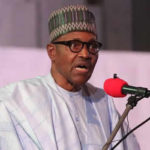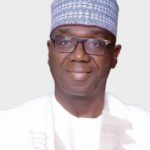Borno State Governor, Babagana Zulum, has faulted the military’s strategy of operating super camps that leaves gaps to be exploited by Boko Haram insurgents to successfully attack areas in the state.
Tribune Online reported last week that the terrorist took over Gubio and Magumeri Local Government Areas without encountering resistance, over which the Governor met with President Muhammadu Buhari at the presidential villa, Abuja at the weekend.
When asked by journalists why the insurgents could attack with seeming ease, he blamed it on the absence of the military on ground because of the strategy to operate super camps.
Zulum explained: “Well, the most important thing is that there is an ongoing military strategy, according to the military authorities, what they called ‘Establishment of super camps.’
“That entails that all other smaller units in various villages and towns shall be collapsed to form part of the super camps in some critical major local government areas.
“In our thinking as laymen not as military personnel, we thought this decision is not wise. We must ensure there is military presence in all the locations.
“We are very much aware of their numerical strength but nonetheless, their absence can create serious vacuum and that has informed the recent attacks.
“However, I heard that the military is now trying to re-establish the military formations in those areas and that they should not form part of the super camps.
“Honestly speaking, the civilian JTF are working but the most important thing is that they don’t have the heavy weapons that they can use to conveniently face the insurgents.
“So, the absence of the Nigerian military in a particular place will create a vacuum in such a way that the civilian JTF and hunters cannot perform effectively.
“I have told Mr President and he has listened to our complaints. He has done a lot for the people of Borno State and it is our sincere hope that this time around, he will take necessary steps to forestall future occurrence.
“But most importantly, the presence of the Nigerian military in almost all the locations especially in local government headquarters, need not be overemphasized.”
The Governor stressed the importance of the Civilian Joint Task Force (JTF) in complementing the work of the military, advocating that they must be properly equipped to deal with the insurgents.
ALSO READ: #ICYMI: 14-year-old girl father said was kidnapped found in boyfriend’s house — Police
He also stressed the need for a wholesome approach to tackling insurgency including addressing the root causing and dialoguing with repentant terrorists.
When asked what was being done to end the crisis, Zulum stated: “This is a very important question. You will recall that the federal government under the leadership of President Buhari has established what we call operation safe corridor.
“This establishment is purposely to ensure that the repentant Boko Haram insurgents are being reintegrated into the system. But somehow, I think we have to look into the efficacy of this system.
“In the last one month, I have been advocating at various local government areas that, let those insurgents who are willing to repent, return so that we shall open up windows for them under the operation safe corridor.
“This is very important because dialogue is also very important because those that were forced into insurgency should be given opportunity to come back home.
“Most importantly, we need to ensure that there is a robust mechanism on ground to take care of them, to rehabilitate them and to reintegrate them.
“During our first economic council meeting, the president did mention that the governors should go back to their home and discuss with their traditional rulers and look into the possibility of resolving issues at their own levels.
“That entails empowering the traditional rulers, the civilian JTF and hunters and ensuring that dialogues are being held between the traditional rulers and repentant Boko Haram. I hope by doing so we can succeed.
“There is a renewed effort in this direction and very soon, I will be having a meeting with the Operation Safe Corridor team to ensure that this is put in place.”






